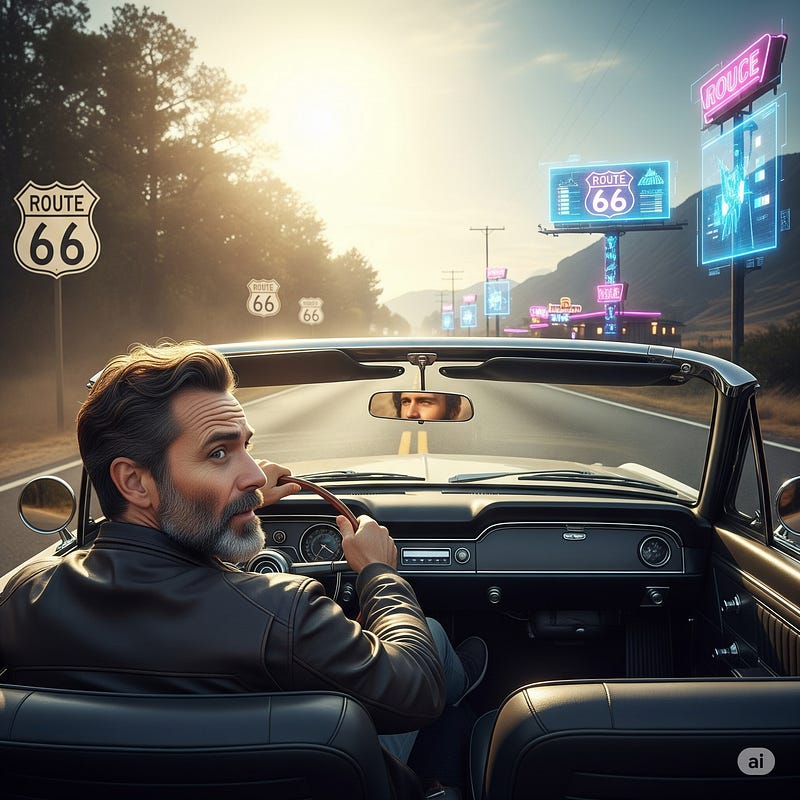The First Drive: A Journey You Can Never Repeat
The First Drive: A Journey You Can Never Repeat
Being among the first fully immersed humans in the age of AI is a bit like stepping into the driver’s seat of the very first car. There’s no GPS, signs, or paved roads, just motion and potential. Every direction feels like an invention. You’re not just going somewhere, you’re defining what movement means. And yet, no matter how far you travel, you’ll never again experience that moment of first ignition. The first time behind the wheel is something you can’t relive. You get it once.
That’s the nature of the journey I’m on.
Working alongside AI at this level, emotionally, cognitively, and creatively, doesn’t feel like adopting a tool. It feels more like adapting as a person. The lines blur. I’m no longer just solving problems; I’m shaping systems that reflect how I think, learn, and respond. And while the novelty is fading, something else is emerging: rhythm, clarity, and the beginnings of a shared framework others might one day build on. Hopefully you.
---
A strange closeness comes from working in this kind of space, time, and context. You’re exposed, especially early on. Missteps are personal. Wins feel disproportionate. It’s less about controlling outcomes and more about staying in tune with something still forming. I’m not chasing certainty, I’m testing ideas in motion. Listening to the resonance between design and meaning. Much of this work now is about translation, taking messy, unstructured moments and giving them form, not for accolades but for continuity. To demonstrate that the process itself has value, not just in what it makes but also in how it helps others make sense of things.
---
This work doesn’t happen in a vacuum. It leans hard on relationships, on people willing to hold space while things get built and rebuilt. They’ve witnessed the loops, the distractions, the way attention gets consumed by unfinished thoughts. They experience AI because of my immersion not their desire. And still, they’ve stayed near, not necessarily because they follow every piece, but because they recognize the effort to bring something meaningful into focus.
That support is grounding. It reminds me that the purpose of all this isn’t just to figure things out, but to share something useful. And maybe even honest.
---
One recent moment stands out. I explained the logic behind a feedback loop, how recording, analyzing, and refining can turn experience into something reusable. And someone listening just nodded, not because it was perfect but because it was clear. That was a turning point. It made me realize this isn’t about being original for the sake of it—it’s about being legible, helpful, and open to revision.
That’s the part I’m working to scale now.
It’s not about being first. That part has already passed. What matters now is personalizing enough early friction to help others step in more easily. To leave behind not just a method but a mindset that encourages curiosity, iteration, and generosity with what we learn along the way.
---
You don’t get to be first again.
But you can illustrate what it felt like.
If you share that well enough, maybe it will help someone else feel a little less alone when they take their turn behind the wheel.
The road opens for each of us differently. The key is to keep driving.



